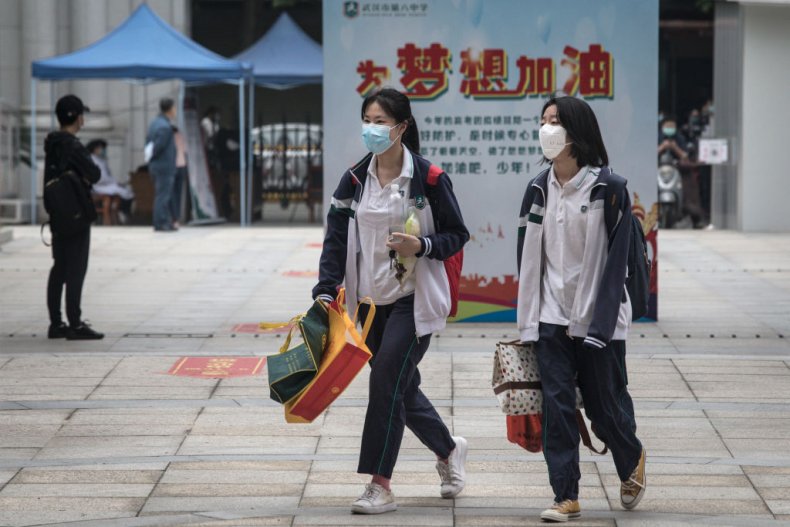
This article is more than
5 year oldThe Chinese city of Wuhan has seen its first new case of the novel coronavirus in more than a month as China has also reported a spate of new infections in the northeast, after moving to reopen from months of stringent lockdown. Meanwhile, Germany, which has also taken steps to ease lockdown restrictions, has seen its infection rate rise and South Korea has seen a flare up of new cases in Seoul, causing the mayor to shutter bars and nightclubs.
As several countries around the world have begun taking steps to ease coronavirus lockdown restrictions after seeing a significant decline in new infections and deaths, states and municipalities across the U.S. have also begun to reopen slowly. But health experts continue to warn of the risk of new outbreaks and a possible second wave of infections that could potentially once again overwhelm hospitals and clinics.
On Sunday, Chinese officials reported that the northeastern city of Shulan had 11 new confirmed cases of the novel virus after one woman in a family tested positive on May 7. The city has now implemented restrictive measures, including a ban on non-essential travel, closure of schools, and a lockdown of residential compounds.
Additionally, the first new confirmed case of the virus has been reported in Wuhan, where COVID-19 was initially discovered last year. In total, China confirmed 14 new cases of the coronavirus on Saturday, after more than a week of new daily cases remaining in the single digits.

China amid the global coronavirus pandemic. Wuhan saw a new confirmed case of the novel virus for the first time in more than a month on Saturday. GETTY IMAGES |
In Germany, new coronavirus infections have risen after the country eased some of its lockdown restrictions. The Robert Koch Institute (RKI), a German federal government agency and research institute, has said that the infection rate is now 1.1, which means each infected person now infects at least one other person. Essentially, if 10 people are infected with the novel coronavirus, the infection rate predicts they would infect an additional 11 people.
Germany's infection rate had previously been hovering around 0.7 in mid-April. At that time, Chancellor Angela Merkel warned that an infection rate of 1.1 could overwhelm the country's health care system within months. But the chancellor announced last week that all shops in the country will be allowed to reopen and students will slowly begin returning to school. Football matches will also restart in the coming days.